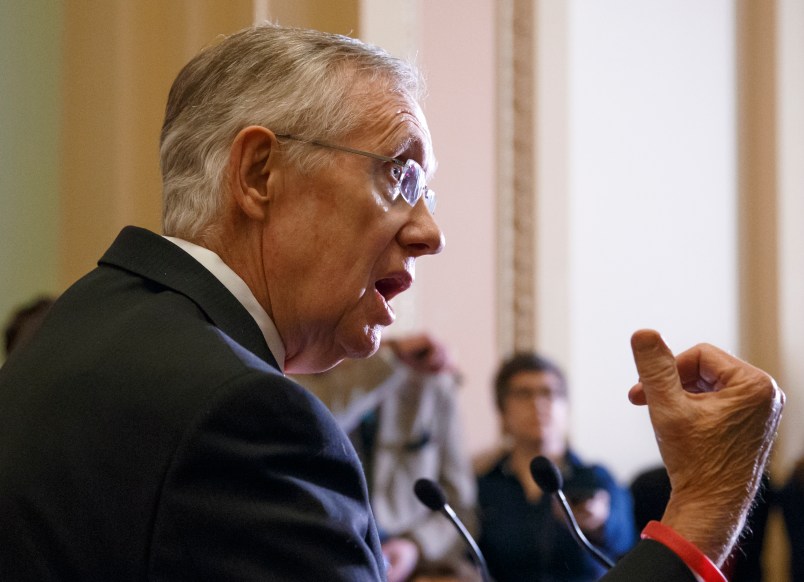Senate Democratic Leader Harry Reid (D-NV) said Sunday that FBI Director James Comey’s letter announcing that nothing was found in emails tied to Hillary Clinton’s private email server was proof that he should never have raised the issue to Congress in the first place.
“Director Comey created a political firestorm eleven days before a presidential election merely to confirm what we already knew: that Secretary Clinton’s email practices were legal,” Reid wrote in a statement obtained by NBC.
Comey’s original letter to congressional leaders informing them of the discovery of new emails that may be “pertinent” to the FBI’s investigation prompted Reid to accuse him of possibly violating federal law. According to the Nevada senator, Comey’s “partisan” decision to disclose the email news just 11 days before Election Day could have violated the Hatch Act, which prohibits federal officials from using their positions to influence an election.
Reid held firm to this stance in his latest statement, suggesting that the FBI director’s all-clear did not undo the possible role he played in swinging the results of the presidential race.
“By confirming that the new emails were meaningless, today’s letter underscores the irresponsibility of Director Comey’s original letter,” he wrote.
Read the full statement below:
Harry Reid reacts to Comey; still maintains Comey may have violated the Hatch Act pic.twitter.com/ebK6OYpJxV
— Bradd Jaffy (@BraddJaffy) November 7, 2016







